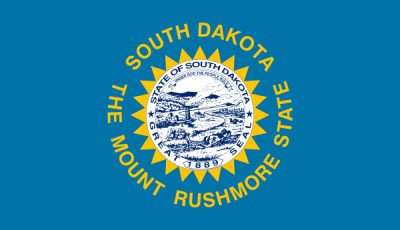Stormy’s Defamation Claim: What is Avenatti’s Endgame?
 Back in May, I probed the question of whether Stormy Daniels’ move to sue President Donald Trump for defamation might backfire on her, if Trump were to file an anti-SLAPP motion (SLAPP stands for “strategic lawsuit against public participation”) and the court were to grant that motion.
Back in May, I probed the question of whether Stormy Daniels’ move to sue President Donald Trump for defamation might backfire on her, if Trump were to file an anti-SLAPP motion (SLAPP stands for “strategic lawsuit against public participation”) and the court were to grant that motion.
Once the case had been referred to the same California court which is hearing Daniels’ challenge to the nondisclosure agreement negotiated by Trump’s (now-indicted) former attorney Michael Cohen, Trump’s legal team did file such a motion and Judge S. James Otero granted it, as many legal observers predicted he would.
This is where the backfire of filing the defamation claim comes into play. Under the Texas anti-SLAPP statute applied by Otero, Trump is automatically entitled to recover attorney’s fees in the case.
“Having granted the Special Motion and denied Plaintiff leave to amend, the Court finally holds that Defendant is entitled to attorney’s fees,” Otero wrote in his order dismissing the complaint. “Texas law is unambiguous that ‘the TCPA requires an award of ‘reasonable attorney’s fees’ to the successful movant.’ A ‘reasonable’ attorney’s fee ‘is one that is not excessive or extreme, but rather moderate or fair.’”
While Trump and his attorney have declared “total victory” over Daniels stemming from Otero’s decision, Daniels’ attorney Michael Avenatti has filed a notice of appeal in the case. Just as was the case with the original complaint, though, Daniels’ appeal carries with it a significant risk: The attorneys’ fees she will owe to Trump, should the appeal fail, will only increase over the course of the appeal.
“Attorney’s fees incurred on appeal are typically ordered by the courts if there is a statutory basis for an award of attorney’s fees,” attorney Larry Walters told YNOT. “Therefore, by appealing a successful anti-SLAPP motion, the appellant is risking liability for additional legal fees if the appeal is denied.”
What isn’t clear is how much Trump will request in attorney’s fees, or how much the court will grant, either now, or following the appeals process.
“The procedures vary from state to state,” Walters explained. “In some jurisdictions, the trial courts make the determination on fee awards, and in other cases the appellate court makes the decision. Some courts will grant a specific amount of appellate fees in a judgment, which represents the anticipated award for an unsuccessful appeal. While the fee award can arise in various ways, it is usually the trial court that sets the amount of fees, since that is an evidentiary determination that only the trial courts are equipped to make.”
Given the (strong) possibility the Ninth Circuit will uphold Otero’s decision and the appeals process will only add to the amount Daniels will have to pay to Trump as a result, it’s reasonable to ask: What is Avenatti’s endgame here?
For starters, Avenatti appears to believe that however much the attorney’s fees due to Trump wind up being, the sum will be eclipsed by an award of attorney’s fees in the NDA case.
Be clear – even assuming Trump is owed attys fees from the defamation case (if he wins the appeal), they will be dwarfed by the fees he and Cohen will be required to pay in connection with the NDA case. Not even close. Yet more “winning” from Trump.
— Michael Avenatti (@MichaelAvenatti) October 16, 2018
Another factor may be Avenatti’s ongoing flirtation with the idea of running for president in 2020. If that potential run for office is part of his thinking, keeping the publicity train rolling surrounding Stormy’s various legal actions against Trump has a value to Avenatti which has nothing to do with whether his client ultimately prevails in court.
I suppose it’s also conceivable Avenatti just isn’t a very good attorney – possibly even a “third rate” one, as Trump has described him. Even some of his critics in the legal community don’t buy that idea, however. Among other things, Avenatti’s track record in his past cases is one which would be hard to achieve for an incompetent attorney.
Even a good attorney can make mistakes of course, especially when practicing outside her or his area of expertise. As such, it’s possible Avenatti is a good attorney who strayed into unfamiliar territory and blundered by bringing a defamation case of dubious value.
Plus, as Ken “Popehat” White observed in a recent episode of the “All the President’s Lawyers” podcast, there are different types of “good attorneys.” Some attorneys (and I think it’s hard to argue Avenatti isn’t one of these) excel outside the courtroom. They’re good at steering public opinion and shaping the debate as it will take place on social media, in the mainstream press, among television pundits and in other non-court forums.
My sense is, contrary to the confidence in the possibility of obtaining a reversal of Otero’s order he has expressed publicly, Avenatti knows the defamation case appeal is a long shot. He may also calculate that whatever the attorney’s fees amount to in these cases, he and Stormy both stand to make a great deal more money from things like selling books, making speaking appearances and other potential income streams which will benefit from the publicity surrounding the cases.
Regardless of how the Ninth Circuit rules on the appeal and whatever Otero may do with the competing briefs in front of him in the NDA case, one thing seems certain: Avenatti is unlikely to ‘go gentle into that good night’ – dismissals be damned.













